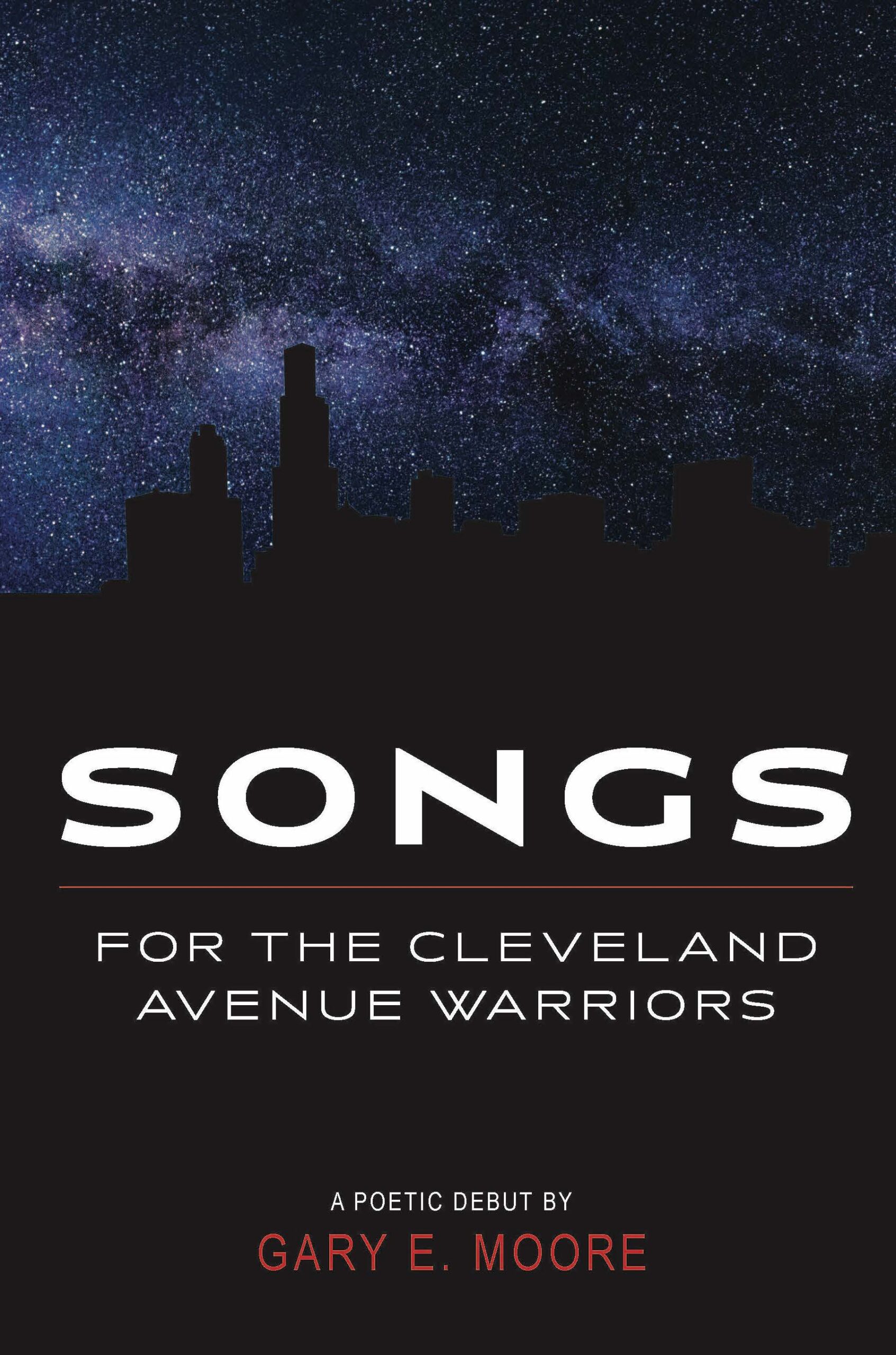In SONGS FOR THE CLEVELAND AVENUE WARRIORS “About the Author” section, Gary Moore says that, long ago, he grew disenchanted with the world and “comfortably retreated into solitude.” This collection of poems, inspired by his becoming a father, is his reentry. And it’s a bold one. Moore is a middle-aged Black Man, and his sensibilities–anger, fear, the use of power–suffuse these poems, making the book very much of the moment. Yet they also deal with timeless topics such as childhood. The very first poem, the titular “Songs for the Cleveland Avenue Warriors,” has the feel of a narrative epic. Like William Carlos Williams’s Paterson, it seems concerned with, as one critic put it, “the resemblance between the mind of modern man and the city.” Plus it gives us a great cast of characters: Lying Lamar, Stuttering Steve, Dennis the Dancing Machine, and Big Al the basketball god.
Moore delivers some great images (“She smelled like a psalm”; “He got shot in the ass with a bb gun”), a few clichés (“the tick / of time and / creaking wood”; “the children of the damned, set loose upon / the innocence of small town farm boys”; plus any line that uses the word “cacophony”), and a few lines that don’t quite make sense (“houses burn while thirteen year old boys / cry in the night like lost children”–well, after such a tragedy, they might be lost children, literally). He occasionally tries to “sound” poetic, making pronouncements like “The infinite abides / above our heads and I want to soar / through its current,” but he is stronger when he sticks to images that further his Paterson-like world-building: “I sure do miss firing up a spliff / and taking a sip of jack / from a CC Club cup clicking with cracked / ice cubes while shooting cues in musty rooms.”
One of the book’s best is “Fifty Shades of Black,” which starts with, “Back when I grew up / black had no nuance. / It either was or it wasn’t.” Moore explores this either/or, recalling that youthful Blackness as “armor,” though there is little nostalgia in the description. His tone is matter-of-fact, which is an irony: no one is nonchalant in recalling their pain. That matter-of-factness says that Blackness equaled pain, and pain either “was or it wasn’t.” For Moore, it was, and still is, though he is determined not to let it beat him. Just like all the characters in these heartfelt, hard-won poems.
Combining of-the-moment racial outrage with timeless themes like the slippage of childhood, the poems in Gary Moore’s SONGS FOR THE CLEVELAND AVENUE WARRIORS are an apt meditation on 21st century urban life.
~Anthony Aycock for IndieReader


